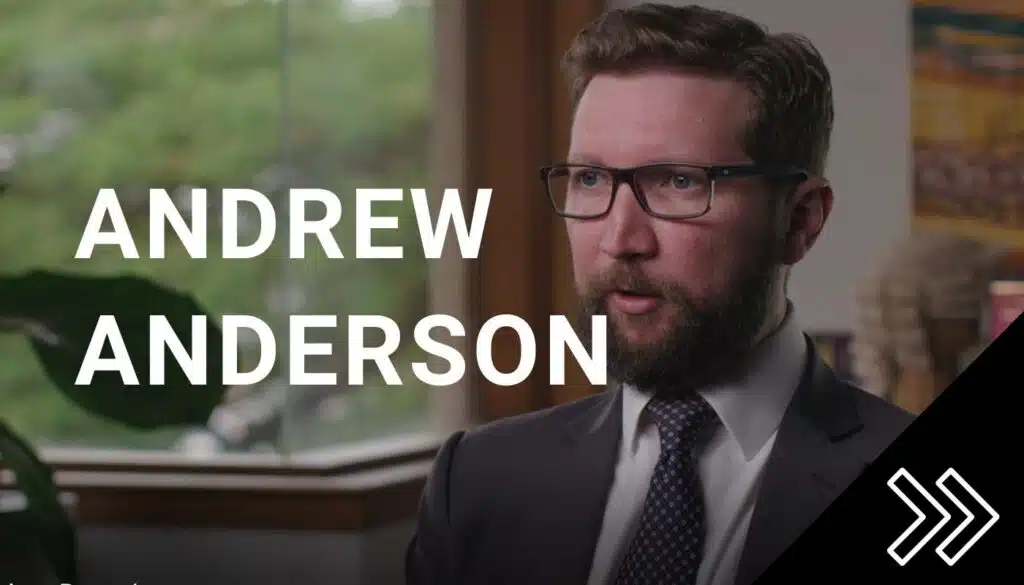Learn about charges of this nature

Assault occasioning bodily harm in Queensland
Assault occasioning bodily harm is a serious criminal offence, which is punishable by actual imprisonment. The term ‘bodily harm’ refers to any bodily injury that interferes with health or comfort. The maximum penalty is 7 years’ imprisonment, although if a circumstance of aggravation applies, it rises to a maximum of 10 years’ imprisonment.
If you are seeking to learn more about assault occasioning bodily harm charges in Queensland, the following topics are covered below:
- Assault occasioning bodily harm offences
- Definitions relevant to this offence
- Maximum and minimum penalties
- Possible alternative charges
- Possible defences to this offence
Assault occasioning bodily harm offences
Section 339 of the Criminal Code makes assault occasioning bodily harm an offence in Queensland. The law states:
(1) Any person who unlawfully assaults another and thereby does the other person bodily harm is guilty of a crime, and is liable to imprisonment for 7 years.
(3) If the offender does bodily harm, and is or pretends to be armed with any dangerous or offensive weapon or instrument or is in company with 1 or more other person or persons, the offender is liable to imprisonment for 10 years.
(4) The Penalties and Sentences Act 1992, sections 108B and 161Q also state a circumstance of aggravation for an offence against this section.
(5) An indictment charging an offence against this section with the circumstance of aggravation stated in the Penalties and Sentences Act 1992, section 161Q may not be presented without the consent of a Crown Law Officer.
The reference to s. 108B relates to mandatory community service. That penalty applies to offences committed in a public place by people adversely affected by drugs or alcohol. It is in addition to any other penalty imposed.
Section 161Q of the Penalties and Sentences Act 1992 refers to the ‘serious organised crime circumstance of aggravation’, which mandates a significant mandatory minimum imprisonment in addition to any other penalty. It targets people who commit an offence of assault occasioning bodily harm in association with being a participant in a criminal organisation.
The Supreme and District Courts Benchbook contains the standard directions about the elements of an assault occasioning bodily harm charge, which must be proved beyond a reasonable doubt.
Definitions relevant to this offence
Assault
Section 245 of the Criminal Code defines ‘assault’ to be as follows:
Definition of assault
(1) A person who strikes, touches, or moves, or otherwise applies force of any kind to, the person of another, either directly or indirectly, without the other person’s consent, or with the other person’s consent if the consent is obtained by fraud, or who by any bodily act or gesture attempts or threatens to apply force of any kind to the person of another without the other person’s consent, under such circumstances that the person making the attempt or threat has actually or apparently a present ability to effect the person’s purpose, is said to assault that other person, and the act is called an assault.
(2) In this section—
applies force includes the case of applying heat, light, electrical force, gas, odour, or any other substance or thing whatever if applied in such a degree as to cause injury or personal discomfort.
Bodily Harm
Section 1 of the Criminal Code defines ‘bodily harm’ as follows
bodily harm means any bodily injury which interferes with health or comfort.
It is important to note that the definition requires both a “bodily injury” as well as an interference with “health or comfort”. For this reason, evidence that “it hurt” may be insufficient in absence of proof of an identifiable bodily injury: Scatchard v R (1987) 277 A Crim R 136.
The definition captures a wide variety of physical injuries. The nature and extent of injuries suffered is relevant to the penalties imposed. While it is not necessary in many cases, often expert medical evidence explains the nature of the bodily injuries suffered by an alleged victim.
Maximum and minimum penalties
The maximum penalty for assault occasioning bodily harm in Queensland is 7 years’ imprisonment, when no circumstance of aggravation applies. The maximum penalty increases to 10 years’ imprisonment in the following circumstances:
- If the offender is (or pretends to be) armed; or,
- If the offender is in company with one or more other person or persons.
Many offences under Queensland law do not carry mandatory minimum sentences. Assault occasioning bodily does when one of two circumstances of aggravation applies to a charge:
- When a person commits the offence in a public place while adversely affected by an intoxicating substance, a community service order of up to 240 hours is imposed in addition to any other penalty.
- When a person commits the offence and the serious organised crime circumstance of aggravation applies: 7 years’ imprisonment is automatically added on top of the sentence the court decides. The 7 years’ imprisonment must be served wholly in prison, in addition to any other penalty ordered by the court.
Possible alternative charges
There are possible alternative violent offences to the offence of assault occasioning bodily harm. The prosecution may determine that a more or less serious charge is appropriate, based on the evidence. Such related offences include:
- Attempted murder
- Common assault
- Grievous bodily harm
- Malicious act with intent
- Serious assault
- Unlawful wounding
Possible defences to this offence
An essential element of an assault occasioning bodily harm charge is that it be ‘unlawful’. That means if the prosecution cannot disprove the act or omission was authorised, justified or excused by law, the person charged must be found not guilty. In Queensland, possible defences include:
- Accident
- Defence of another
- Extraordinary emergency
- Insanity
- Mistake of fact
- Prevention of the repetition of an insult
- Provocation
- Self defence
- Unwilled act
Amongst the most important advice a lawyer can provide is whether or not a defence applies to an individual case. In some cases, multiple defences may apply. In others, no defence is viable. Certain defences cannot operate together. For this reason, anybody facing a charge of assault occasioning bodily harm should seek early, authoritative advice from an experienced criminal lawyer to understand their legal position.
Get advice about a specific case

About Andrew Anderson

While Andrew Anderson has a proven record of successfully representing clients in numerous high-profile cases, much of his work is devoted to resolving issues quickly and discreetly.
Described by the Courier Mail as “one of the best legal minds”, he fearlessly advocates for the rights and interests of his clients facing complex and serious criminal charges in Queensland.
Based in Brisbane, Andrew Anderson operates across Queensland in representing clients seeking an experienced criminal lawyer.
Anderson Legal provides comprehensive criminal law defence services for people facing investigation or charges relating to serious criminal offences in Queensland. In assisting clients, this firm:
- provides advice and representation
- defends against unfair allegations
- resolves, where appropriate, charges by negotiation
- applies to courts for orders, including to exclude evidence
- represents clients in complex trials and sentences
- litigates appeals for wrongful convictions and sentences
Anderson Legal provides clear guidance in all cases. It allows clients to make informed decisions about their options and their preferred path forward.
Criminal defence work requires more than just an understanding of criminal law and procedure. It requires the insight to know that without the ability to properly contest allegations, innocent people are condemned to unjust convictions and punishments. History provides countless examples of innocent people wrongly accused of committing serious offences and prisoners condemned to punishments that do not fit the crime.
Anderson Legal is a Brisbane-based law firm that has the expertise and proven experience to provide criminal defence services for individuals and businesses. If you need a trusted and respected criminal lawyer, there are many reasons why Anderson Legal should be your preferred choice.
Contact Anderson Legal

Call this firm for a confidential, obligation-free telephone consultation
This firm offers a free telephone consultation. The reason is simple – it shouldn’t cost anything for a person to pick up the phone and understand if a particular law firm can help them or not. Anderson Legal takes the time necessary to understand the issues and to determine if this firm is in a position to provide the standard of advice and representation you are entitled to expect.
Clients of this law firm have often contacted Anderson Legal following a referral from other lawyers, however all enquiries are welcome. Anderson Legal understands people put their faith and trust in the work of their lawyer. Professional reputation follows reality and not the other way around. Andrew Anderson offers clients a proven track record of success in complex and difficult cases across all court levels, including multiple appeals before the High Court of Australia.
While Andrew Anderson has substantial experience litigating criminal cases across Queensland, he has a particular focus on cases arising in Brisbane, Beenleigh, the Gold Coast, Ipswich, Maroochydore, and Toowoomba. He welcomes enquiries from other centres in Queensland.
It is not uncommon for this firm to receive requests for assistance that may be better handled by others. In the interests of maintaining the highest standards, there are also occasions when new cases are declined to focus on existing clients’ needs. In such instances, Anderson Legal will try to identify who may be in a position to assist you.
If you seek a confidential, obligation-free telephone consultation about a specific issue affecting you, contact this firm.
Can this firm help you?
Call Anderson Legal
Anderson Legal seeks to make legal costs predictable, understandable, and transparent to ensure the focus remains on outcomes and results.
This firm negotiates its fees with clients and adopts fixed fees, capped fees, and time-based billing, depending on the work involved.
Why should I call? What happens next?
If you need legal advice or are unsure whether you do, you should call Anderson Legal. It costs you nothing but time to work out if this firm can help you.
When you call, you will be asked a few questions about yourself, your issue, and what you hope to achieve.
If Anderson Legal can assist you with your legal issue, you will get informed about what this firm may be able to do to help you and discuss the legal fees that may be incurred.




